Search Results
Showing results 61 to 79 of 79

DNA Extraction from Wheat Germ
Source Institutions
DNA is the thread of life. Encoded in its genetic sequence is the information that makes each of us unique. This activity allows you to see long, stringy strands of DNA extracted from wheat germ.
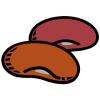
Not Just A Bag Of Beans
Source Institutions
In this activity, learners count and measure kidney beans to explore natural selection and variation. Learners measure the length of 50-100 beans.
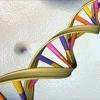
DNA Extraction from Cheek Cells
Source Institutions
DNA is the thread of life. Encoded in its genetic sequence is the information that makes each of us unique.

Making Babies
Source Institutions
This activity is designed to introduce learners to genes, genotypes and simple inheritance patterns.
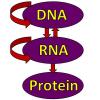
Protein Factory
Source Institutions
In this activity, learners take on the role of various parts of the cell in order to model the process of protein synthesis.

Gel Electrophoresis
Source Institutions
In this activity, learners simulate the process of DNA fingerprinting by using electricity to separate colored dyes.
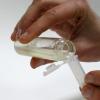
DNA Nanotechnology
Source Institutions
In this activity, learners explore deoxyribonucleic acid (DNA), a nanoscale structure that occurs in nature.

Biotechnology Through Time
Source Institutions
In this activity, learners investigate the history and development of agricultural biotechnology.
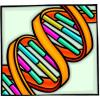
Chromosome Shuffle
Source Institutions
Role-playing the parts of chromosomes and centrioles, learners use large chromosome models and nylon cords (spindle fibers and cell membranes) to walk through the processes of mitosis and meiosis.

Evolution in Plane Sight
Source Institutions
In this activity, learners model directed evolution by making paper fly. Learners construct and fly paper airplanes.
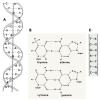
DNA the Easy Way
Source Institutions
This demonstration can be used to help learners visualize DNA by lysing (breaking open) bacterial cells on a slide and “stringing up” the DNA with a toothpick in less than one minute.

Reebops
Source Institutions
In this genetics activity, learners create imaginary creatures known as "Reebops" to explore the relationships between genes and inherited traits.

Stem Cell Differentiation Game
Source Institutions
This game uses a modified Uno deck to review concepts related to stem cell research and diabetes.
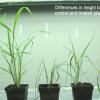
Effect of Environment on Plant Growth
Source Institutions
The purpose of this plant biotechnology activity is to demonstrate the effect of changes in the environment on the growth and fertility of landscape grasses and crop grasses such as wheat and rice.
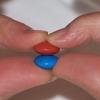
Survival of the Fittest: Battling Beetles
Source Institutions
This guided inquiry three-part activity engages learners in thinking about the mechanism of natural selection through data collection and pattern recognition.
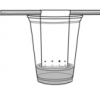
Busted by Biology
Source Institutions
In this two-part activity, learners will extract their own DNA from their cheek cells and learn how DNA is analyzed and used to solve crimes.

Scavenger Hunt: A Group Collection
Source Institutions
In this activity, learners are divided into teams.
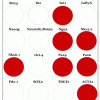
Microarrays and Stem Cells
Source Institutions
In this activity, learners use microarray technology to determine which genes are turned on and off at various points in the differentiation of pluripotent stem cells on their way to becoming pancreat
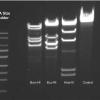
Restriction Enzyme Digestion: How does it work? Why is it useful?
Source Institutions
In this activity related to plant biotechnology, learners use restriction enzymes to cut up DNA from a virus called Bacteriophage λ, a process known as restriction digestion.
